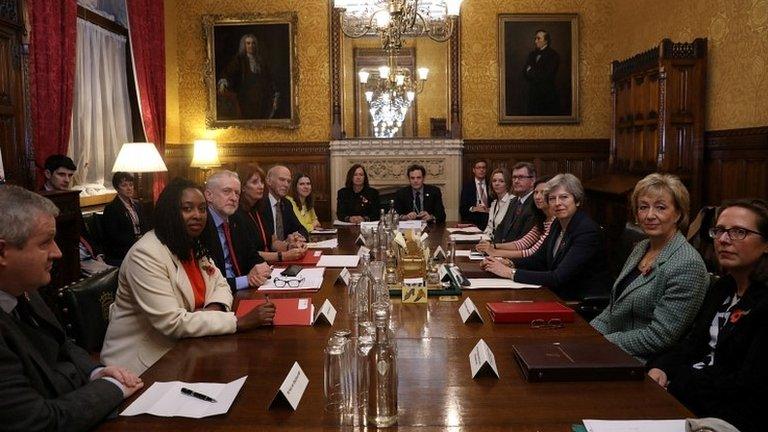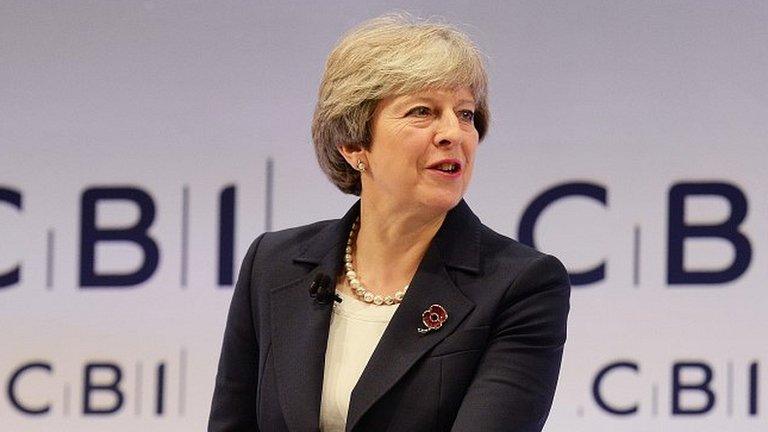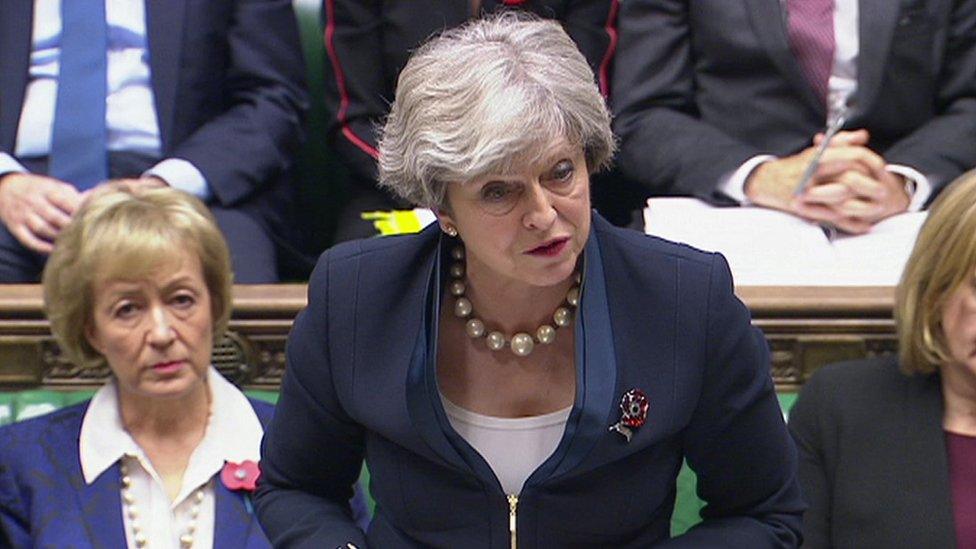MPs launch inquiry into workplace harassment
- Published

MPs are to examine the use of non-disclosure agreements as part of an inquiry into sexual harassment in the workplace.
The Women and Equalities Committee said it would consider whether they were being abused by employers and legal experts to "cover up wrongdoing".
How to protect staff and make it easier for them to report abuse are among other issues that will be looked at.
Tory MP Maria Miller said changes to workplace culture were clearly needed.
The inquiry follows a string of allegations of harassment and bullying against leading figures in the US film and media industries, as well as claims of inappropriate behaviour in Parliament and other high-profile British institutions.
Announcing the inquiry, the committee's chair, Mrs Miller - a former Conservative cabinet minister - said women had come forward to speak about the "appalling experiences" that they had faced in a number of different sectors.
The cross-party committee, she said, would look at the extent of the problem in British workplaces, who the perpetrators were, why it was continuing to happen and how it could best be tackled.
The MPs will consider the scope of victims for legal redress, including employment tribunals and other forms of dispute resolution, as well as the use of non-disclosure agreements.
'Unenforceable'
Critics says these confidentiality agreements have been used to buy the silence of victims of harassment and assault.
"We took some evidence in January from experts in this area who told us that they felt many of these non-disclosure agreements were actually unenforceable because it isn't lawful to ask somebody to cover up criminal wrong-doing in this way," Mrs Miller told BBC News.
"But many of those who are forced to sign non-disclosure agreements really have very little knowledge of the law and wouldn't be aware that they're being asked to do something which is unlawful in itself."
The cross-party committee is already looking at women's experiences of everyday sexism in public places.
Under proposals published last week, MPs found to have bullied or harassed their staff will have to write a letter of apology and undergo training while, in more serious cases, they could be suspended or forced to face a public vote on their future.
The committee also called for a new code of behaviour, independent of the political parties, applying to everyone on the Parliamentary estate, including visitors.
- Published8 February 2018

- Published10 January 2018

- Published6 November 2017

- Published6 November 2017

- Published1 November 2017
